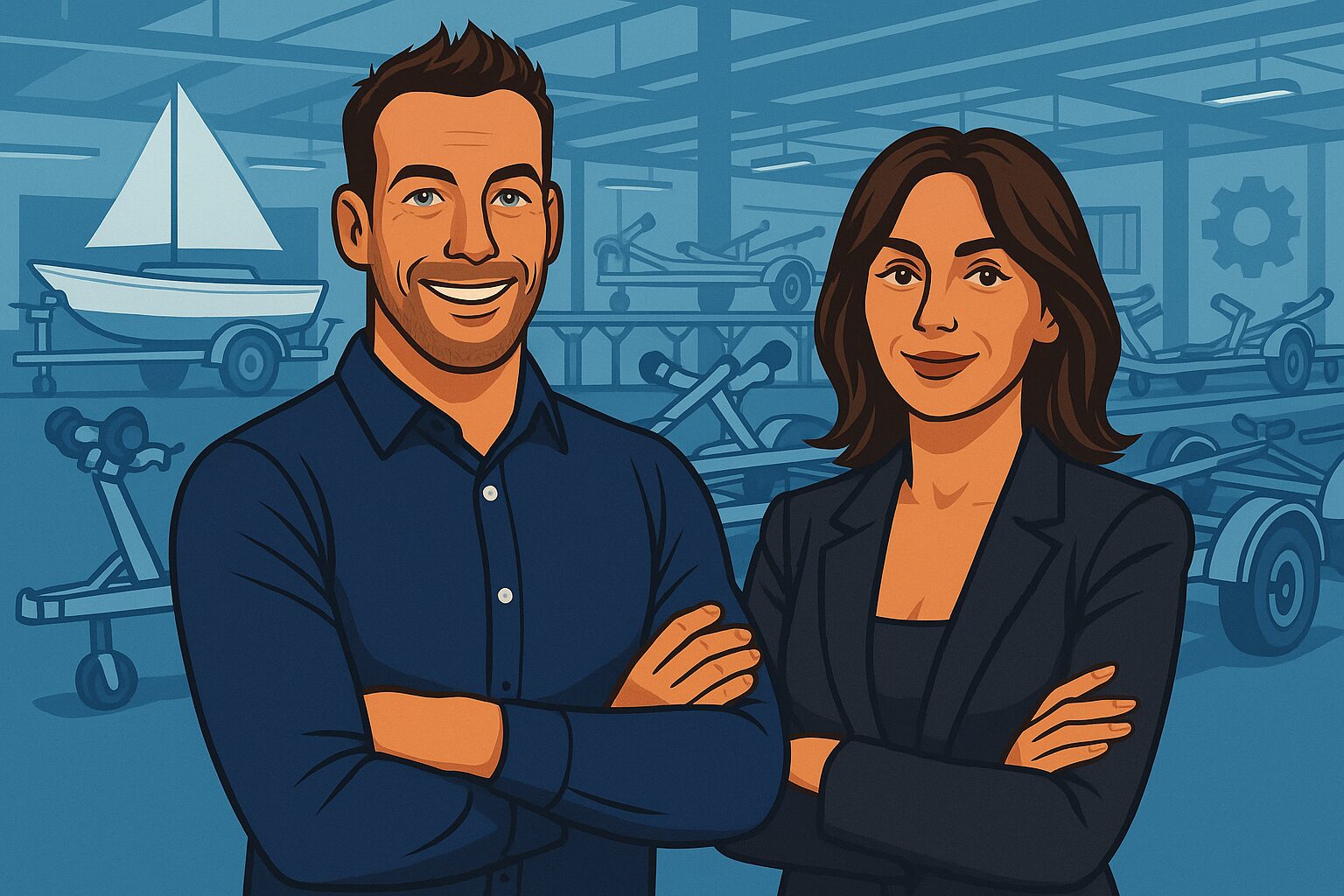The Venture Way – Building Tomorrow, Honoring Yesterday
In an industry where handshake deals still matter and reputation carries more weight than marketing budgets, Venture Trailers has carved out something rare: a manufacturing philosophy that treats innovation not as disruption, but as evolution.

“My father taught me a long time ago that youth brings a different perspective,” recalls Stephanie Van Slyke, reflecting on her early days working at the company her father founded in 1988. Now, as co-owner and president, she approaches everything from production line efficiency to dealer relationships with a balance of experience and fresh thinking—a balance that makes all the difference in an industry where “we’ve always done it this way” can be both strength and trap.
Partnerships Built on Personality
Venture understands a fundamental truth about the marine industry: dealers don’t want to think about trailers. They want products that show up, work flawlessly, and require minimal mental bandwidth. This insight shapes how the company approaches everything else.
“It’s about how we treat people,” says Stephanie. “Dealers will say ‘yeah, they have a good product’, but the trailer doesn’t have a personality – it’s the person they’re talking to on the other end of the phone or email that is at the heart of the relationship.”
If dealers want simplicity and reliability, then every internal process, every innovation, every decision must ultimately serve that goal. It’s a philosophy that prioritizes relationships over transactions, understanding that in an industry where products are increasingly similar, the experience matters more than the specifications.
Innovation as Evolution, Not Revolution
While manufacturing circles often embrace dramatic overhauls promising to revolutionize everything, Venture’s approach is more nuanced and ultimately more effective.
“Our mindset is always to try and make things better – whether it’s on the production floor, in administrative processes, or shipping,” Stephanie explains. “Every time we look at something, we want to figure out how we can make it more efficient and do it better.”
This plays out in meaningful ways throughout the organization. During COVID-19, they developed automated backorder reports to keep dealers informed. When file storage systems slowed customer service, they invested three years digitizing everything so representatives could access complete order histories with a single click. On the production floor, they strategically added CNC machines, drill lines, and automated saws not just for efficiency, but for consistency.
“The machinery has allowed us to be more consistent in our cuts and our bends and our drilling,” Stephanie notes. “And that efficiency means we can reposition workers into areas where human judgment adds more value.”
The Generational Bridge
Perhaps most remarkably, Venture has managed to thread the needle between institutional knowledge and fresh thinking. In many family businesses, this creates tension, but at Venture, it’s become a competitive advantage.
“When Matt and I joined the company, we were the young people with the ideas,” Stephanie remembers. “Now, we have something to learn from the young people. We’re always learning.”
Young employees bring technological fluency and fresh perspectives on process improvement. Experienced managers contribute strategic thinking and relationship skills. The result is what Stephanie calls a collaborative environment where learning flows both ways—not just feel-good philosophy, but a practical approach that drives real operational improvements.
The Path Ahead
The challenges facing Venture are familiar to any manufacturing business: changing workforce expectations, technological evolution, supply chain volatility, and increasing competition. But their response reflects hard-won wisdom about sustainable growth.
“If you don’t keep evolving, you’ll stay stuck at the bottom,” Stephanie observes. “We’re not complacent in the way that we manufacture and the way that we operate. The wheels are constantly turning to make things better.”
This doesn’t mean chasing every trend or pivoting dramatically. Instead, it means maintaining their methodical approach to improvement while staying true to core principles—a philosophy that positions Venture not just for survival, but for sustained relevance in an industry that rewards consistency as much as innovation.
It’s a long-term perspective that treats business relationships as investments worth nurturing across decades, not quarters. For dealers tired of being treated as revenue units and manufacturers struggling to balance growth with stability, this offers a different kind of competitive advantage: one built on trust, sustained excellence, and the patient work of getting better every day.